Header image courtesy of @Sisters In The Wild
At the centre of gravel riding is the experience and it’s one that everyone should feel welcome to come along and partake in. We chatted with key figures from across the gravel riding scene to get their insight into what they would like to see from a women-friendly gravel event and to identify events which already showcase best practice.
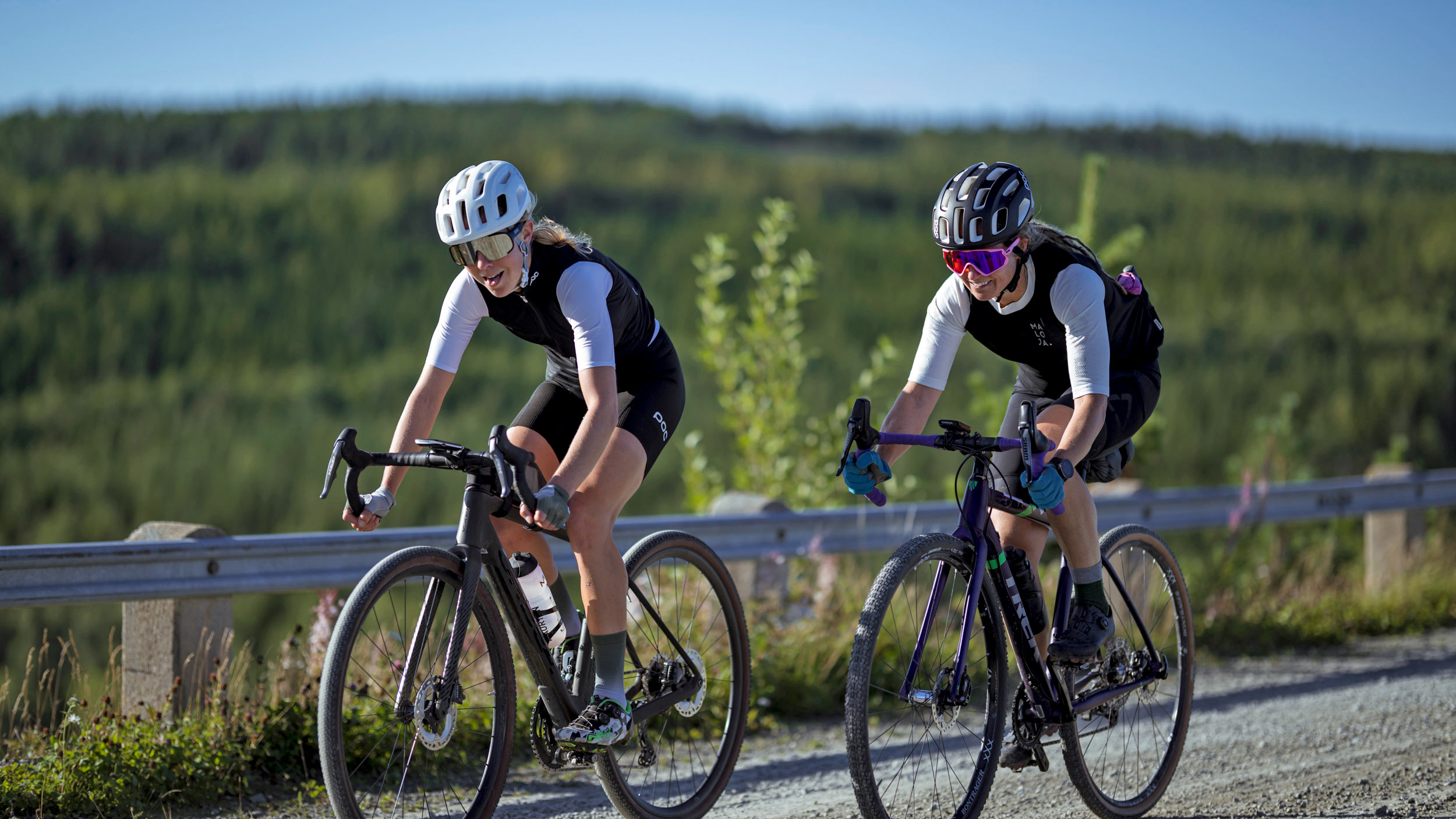
Image courtesy of @Emmie Collinge
How does a post-event beer emblazoned with the words “For the man” sound? Or signs at the entrance to technical sections of the course telling you to “Grow some balls”? Not so welcoming. In fact, we’re betting that a MTFU-attitude could actively turn riders away from attending a gravel event.
As with diversity in life in general, we don’t think it’s right to define female gravel riders as one easily labelled entity, so we tapped into a variety of experts and experienced riders from a wide range of events and backgrounds and present here some of the stand-out opinions. If gravel event organisers take anything away from this article, it’s the need to listen to their audience.
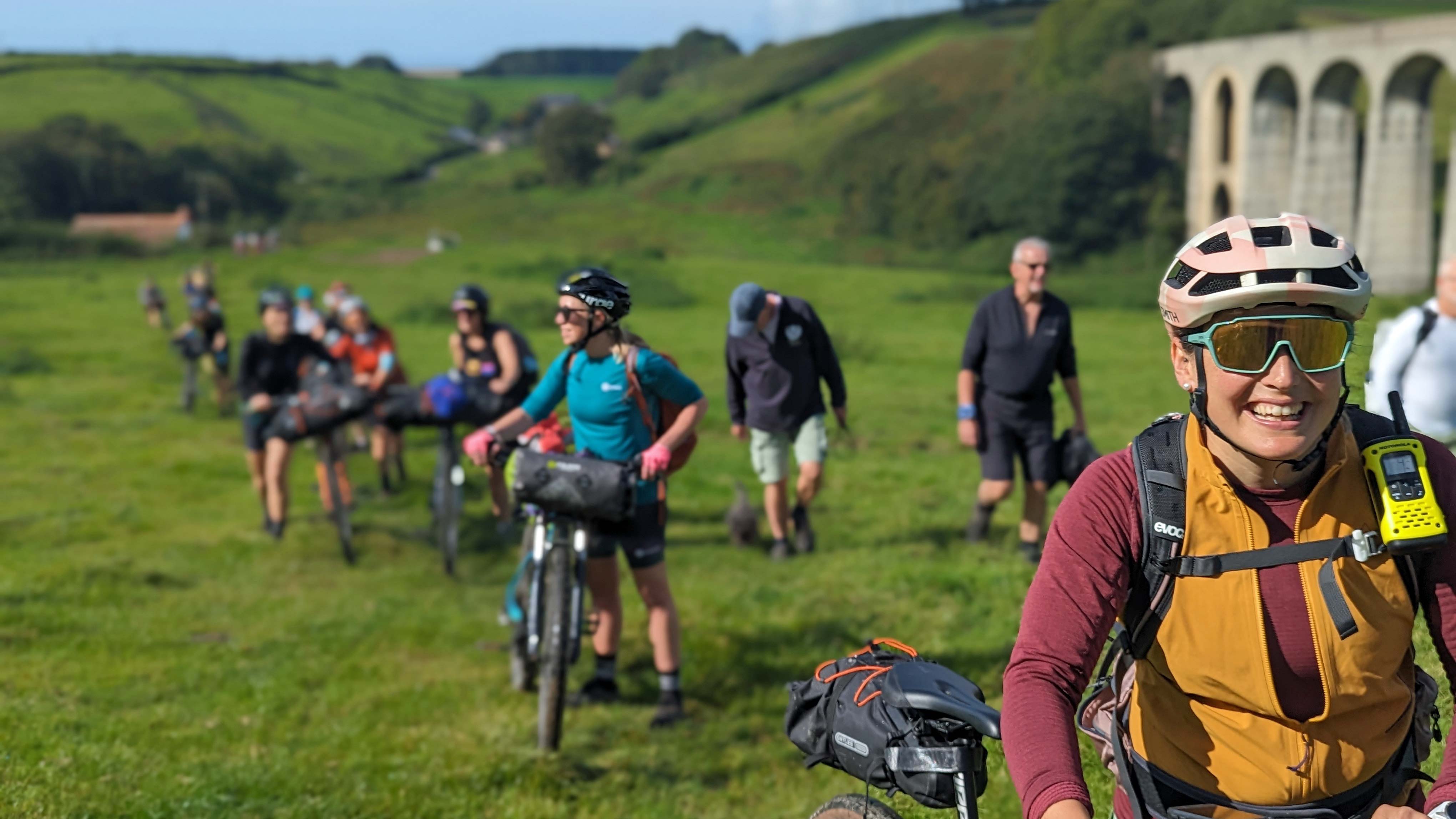
Image courtesy of @Sisters In The Wild
Sisters In The Wild
Even before you arrive at a Sisters in the Wild event, there’s a sense that you’re welcome. The optional pre-event WhatsApp groups, the images used, the conversational tone and the no-wrong-questions mentality are all part of the welcoming ethos of the event. SITW runs community-focused bikepacking and gravel adventures for women, trans and non-binary riders of all abilities. We spoke to Charlotte Inman, the co-founder of the UK branch on the switch-over day between five consecutive gravel camps in Lanzarote.
“Cycling is historically cis-male dominated and Sisters in the Wild is really special as we bring women, non-binary and trans riders together, creating a space where the default mode is not competition”, she told us. Charlotte continued “What we do with our women, trans and non-binary-only camps and workshops isn’t better than mixed events – they’re just different. One thing we’ve found we’re able to create through Sisters In The Wild are connections that last. I feel that is because we create a safe, open space where riders can explore the world of gravel riding."
“Put yourself in the shoes of someone turning up for the first time on their own”
"We get a real mix of abilities, including more experienced riders and first-timers. At every event, we make sure there are different elements within it that bring everyone together. Beginners get skills and build their confidence, while more experienced riders can share their riding with like-minded people to move further into the gravel riding world. We try to bring everyone into the same space around the rides, through evening workshops and making sure that all riders get to spend time with each other when not riding."
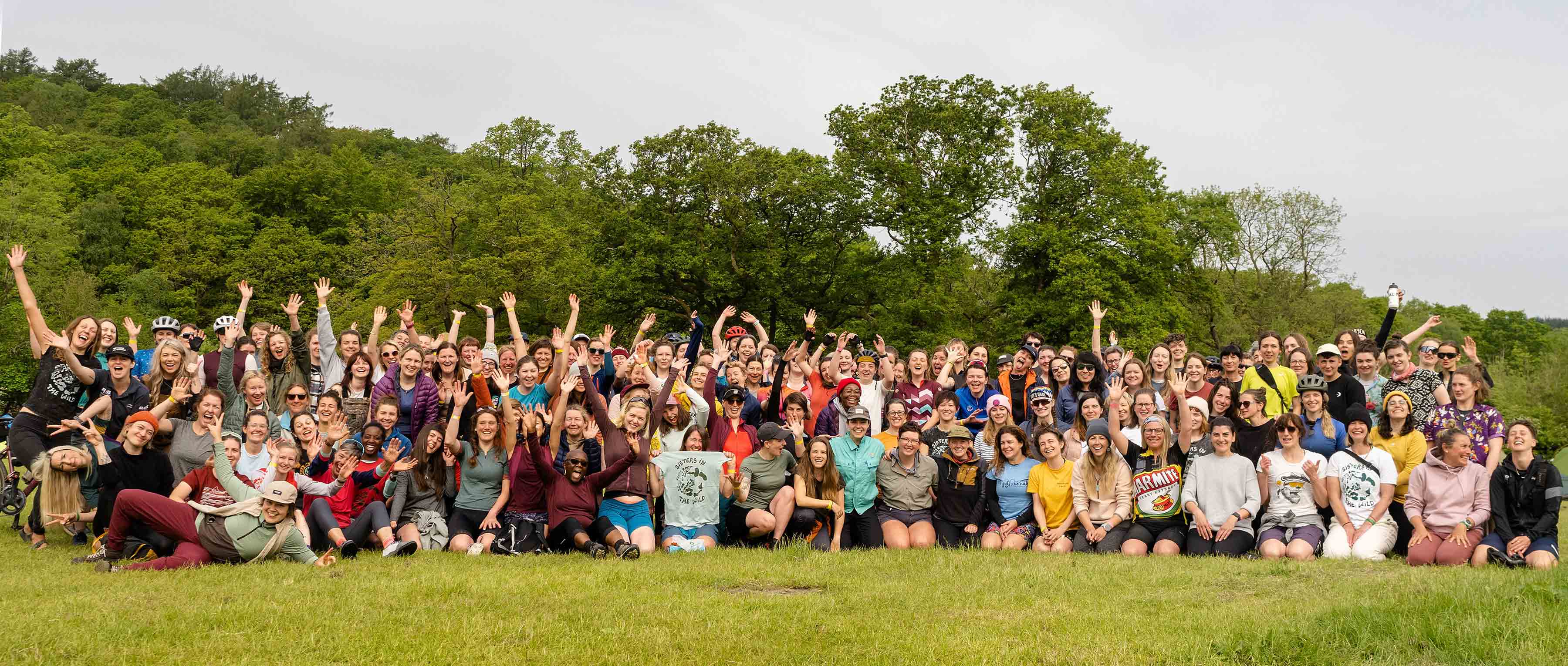
Image courtesy of @Sisters In The Wild
"Put yourself in the shoes of someone turning up for the first time on their own. We make a pre-event WhatsApp group that’s optional to join, but we find a lot of people end up having some sort of connection before they arrive. When they are on site, the next step into encouraging people to connect can be as simple as “come have a drink at X sponsor’s tent.” If I was going to an event, my biggest fear would be if I would have a good time solo. "
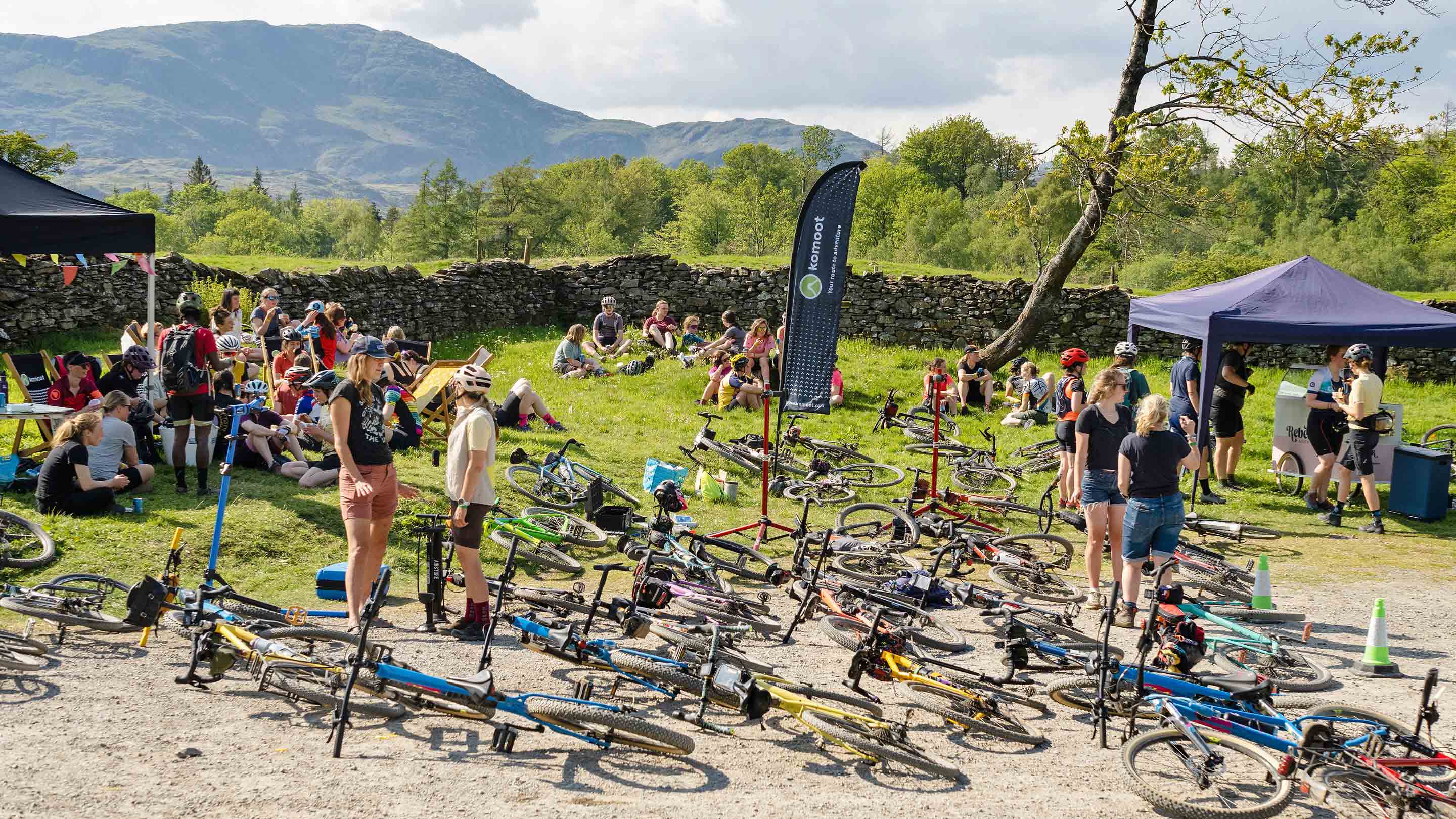
Image courtesy of @s.hewittphotography
"But not all women are the same. You can talk about women as one, but there’s a lot of diversity here too. Some won’t care about the make-up of your event, others may want gentler events and others look for opportunities to meet new people. Here at Sisters In The Wild, we’re keeping it women, trans and NB for now, but it would be awesome to work with mixed events in the future. At our core, we’re all about the bike riding as well as the conversation. SITW can be badass, but we also want to be authentic and make connections that last.”
Recommendations - There’s a big element of seeing yourself represented. Events should work on how great it is to feature women and how best to tell their stories.
Food for thought - Look at what happens before the event: What are the barriers? Childcare, transport, confidence, fitness, experience. More specifically, look at what might stop women from getting there.
Tip for event organisers - Bring a woman into your team and diversify the voices within it so that you can reflect on how you’re approaching the event.
It is clear that Sisters in the Wild events are far removed from the typically male-dominated and misogynistic events that can be found elsewhere. Open and welcoming, yet not attempting to be a gatekeeper to the sport, we’d argue that they’ve embraced the true ethos of gravel - a ride-anywhere, inclusive community of all-surface riders and an event with great toilets, female guides/mechanics and a lot of effort and investment into inclusivity.
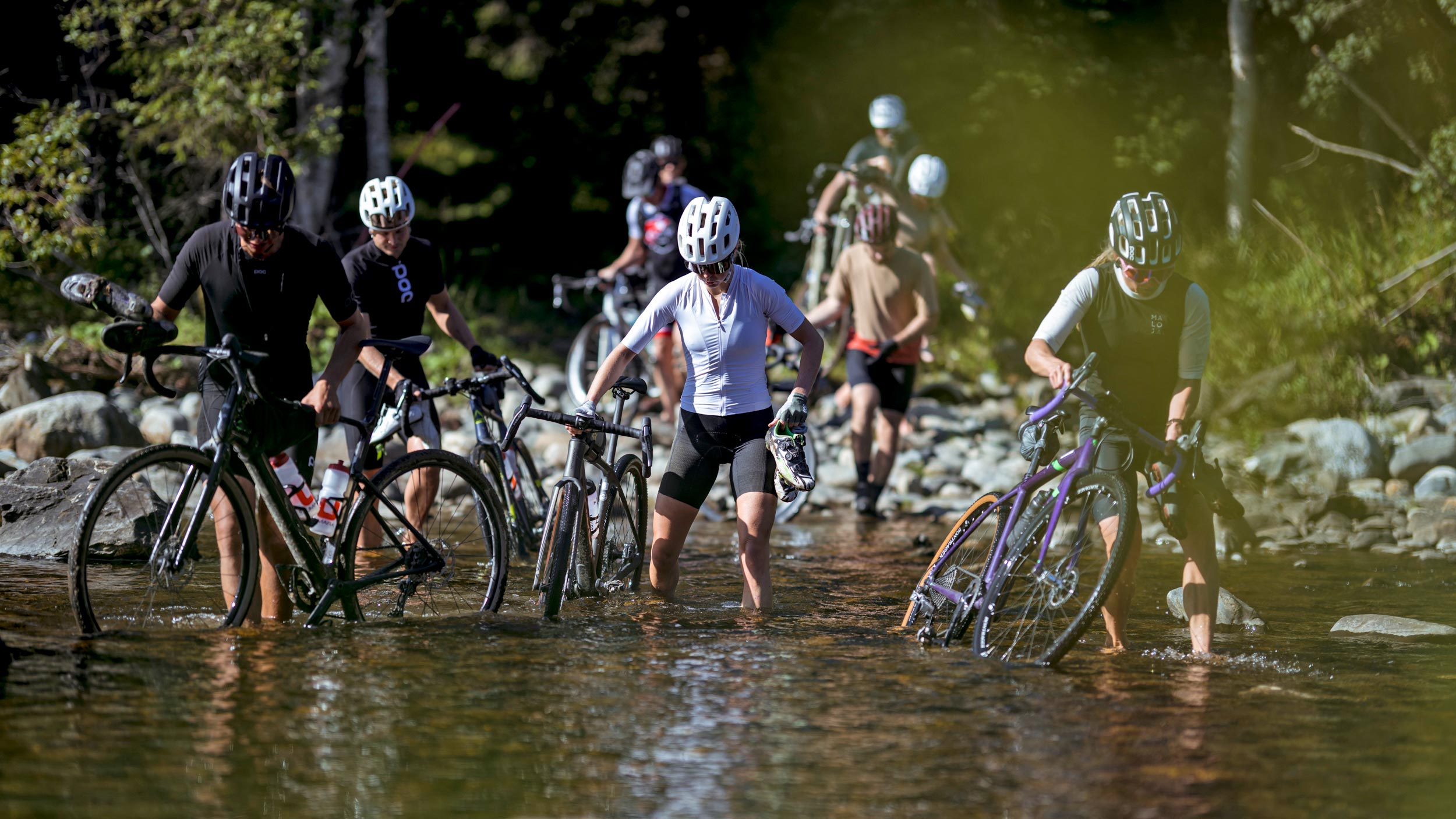
Image courtesy of @Emmie Collinge
komoot cycling communities
Kelly-Jayne Emmerson is an experienced gravel rider and mountain biker, who professionally entered the cycling industry over two years ago, working as the Cycling Community Manager for komoot. Since then, her work and passion have gone through the roof, allowing her to experience even more gravel events around the world, from which she’s picked up a wealth of experience on event do’s and don'ts.
“If you don’t see any other women there, then you’d question why you’re there.” Kelly-Jayne told us. She continued “One big hurdle for women’s participation can be when tickets are launched and sell out within a day. I’m not sure if there’s research to back me up but there’s more to think about for women, especially if you’re a mum. This is why it’s so good when events hold back some tickets, or alert communities of women and other minority groups well in advance to get first dibs. My advice regarding ticketing is to keep it open for longer and give access to those who are under-represented earlier."
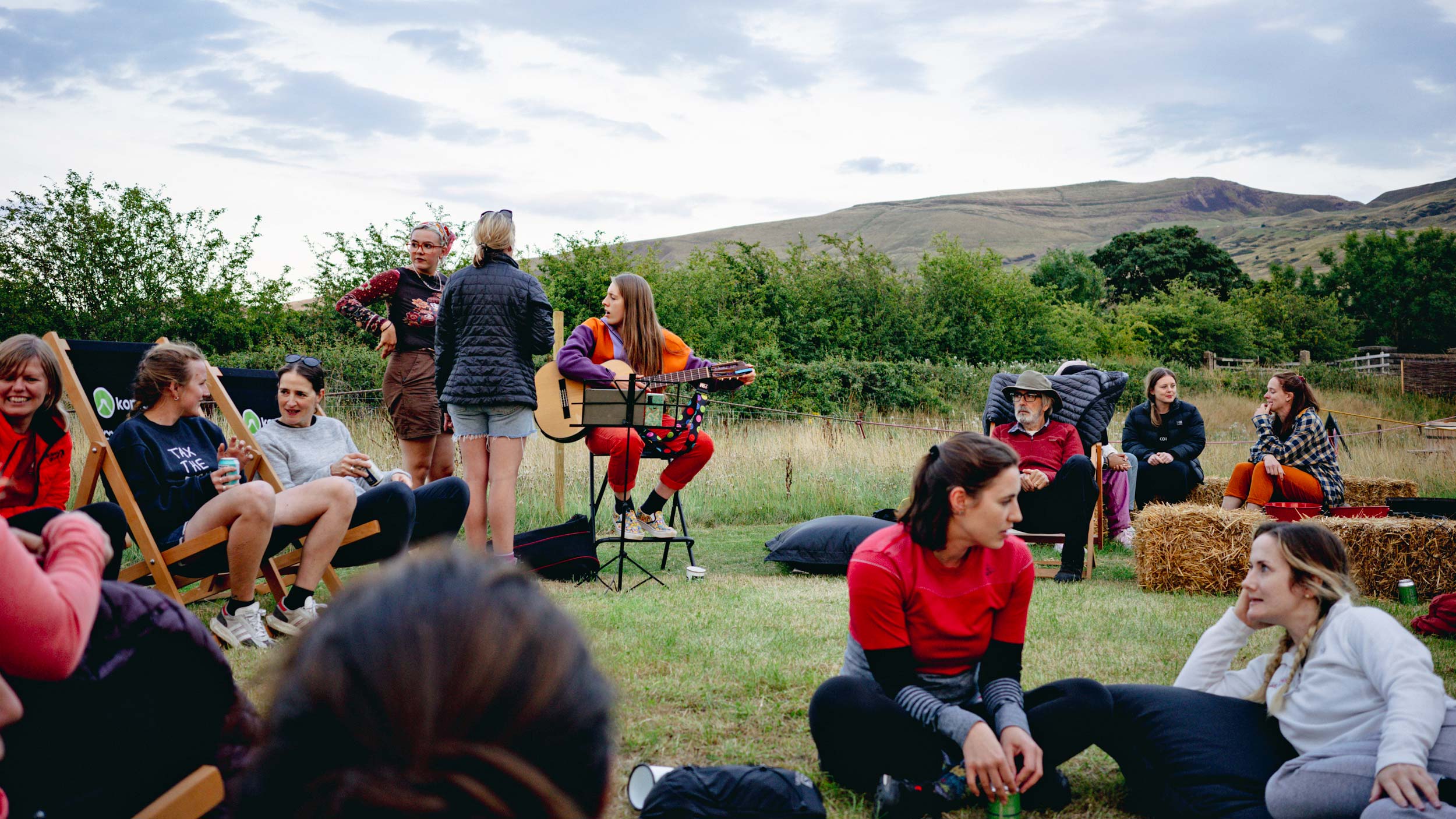
Image courtesy of @komoot
“You can’t have this conversation without mentioning toilets”
"You can’t have this conversation without mentioning toilets. From my experience, most events can do better. If you’re on your period, you need a proper toilet with proper hand-washing facilities, especially if there are riders using mooncups. Often, just by looking at the facilities, you can guess if it’s an all-male organisation - simple details like this can make a huge difference to the experience of female riders. When events invest in this sort of stuff, it helps and it doesn’t go unnoticed. In my experience, Sisters In the Wild have always had the best toilets.”
“For us, the focus has been on creating an atmosphere in which everyone can feel comfortable regardless of gender and I think we’ve done a good job on this front”
Image courtesy of @komoot
Image courtesy of Sisters In The Wild
Image courtesy of @komoot
No-gos - Having a post-event beer with a label that reads “This is the beer for the man” or any mid-way signs ahead of technical sections that read “Man up” or “Grow balls.” This is a clear way to alienate.
Things to think about - How you name your routes: Smaller routes shouldn’t be implied as being any less epic. All rides are brilliant, so try to avoid communicating that anything less than the biggest distance is the norm.
Sign-up forms - Can you design your entry forms to make them more inclusive? Do you need to ask about the gender of the participants? If you do, consider adding a "prefer not to say" choice.
Trackers - For many people, being allocated a tracker for the duration of the ride can be reassuring. Think of it as a sign that someone is looking after you. When I raced MTB, it was a given that you’d have to carry one.
Mechanical support - All participants are often expected to be fully self-sufficient and this can lead to a sense that you shouldn’t be there if you’re not fully capable. For komoot events in the UK, I always bring Charlotte, Lily and Steph for mid-ride mechanical support.
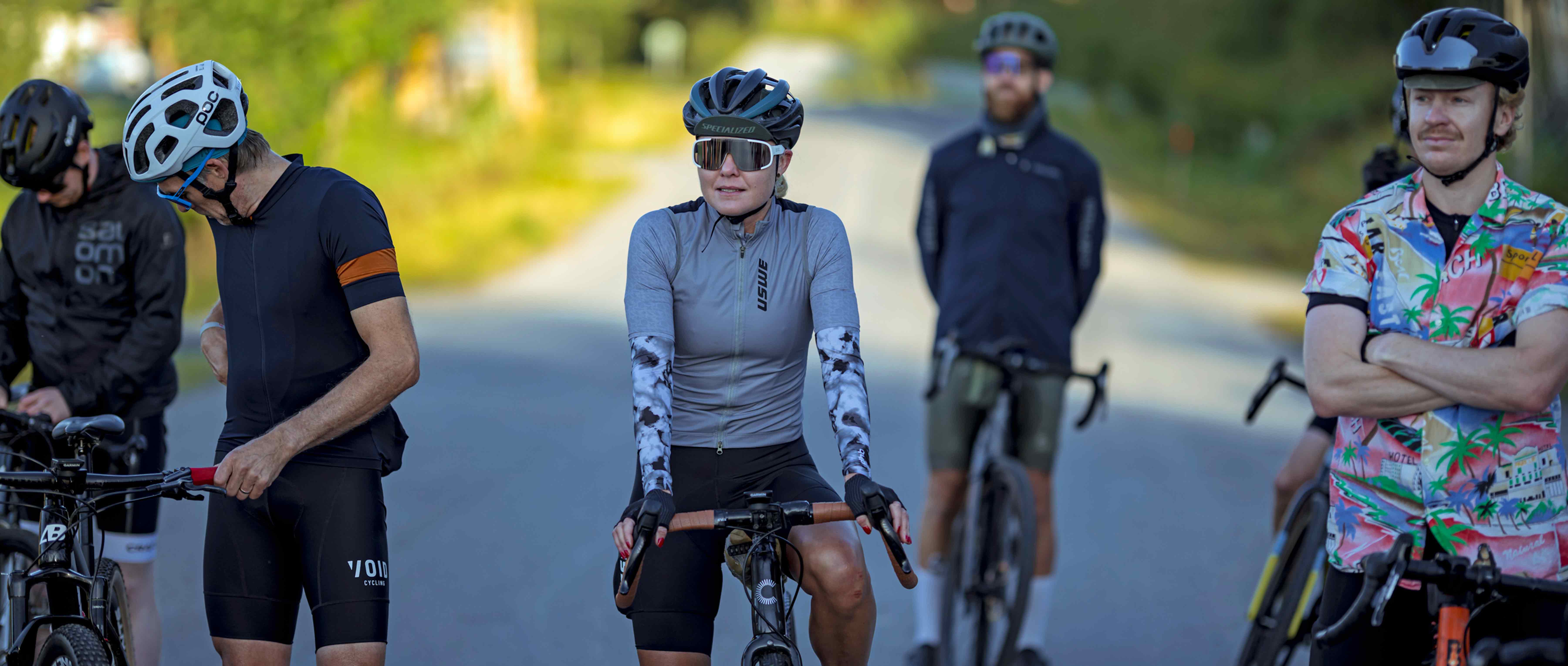
Image courtesy of @Emmie Collinge
Åsa Ehrnholm, amateur ultra-distance racer and co-founder Åre Gravel Club
“I’ve never felt unwelcome at the gravel events I’ve been to, even if I’ve always been in a minority as a woman there. I started Åre Gravel Club with a friend, Olle and to be honest, we haven’t particularly thought much about gender splits – for us, the focus has been on creating an atmosphere in which everyone can feel comfortable regardless of gender and I think we’ve done a good job on this front. "
“I think if it’s a big and important race, then there should be separate starts for men and women”
"I think if it’s a big and important race, then there should be separate starts for men and women. But, considering the bikepacking and ultra-distance events that I know, I think mass starts are great – especially if it’s a smaller event. It’s not a given that there’d be enough women to have someone to ride with all the way.”
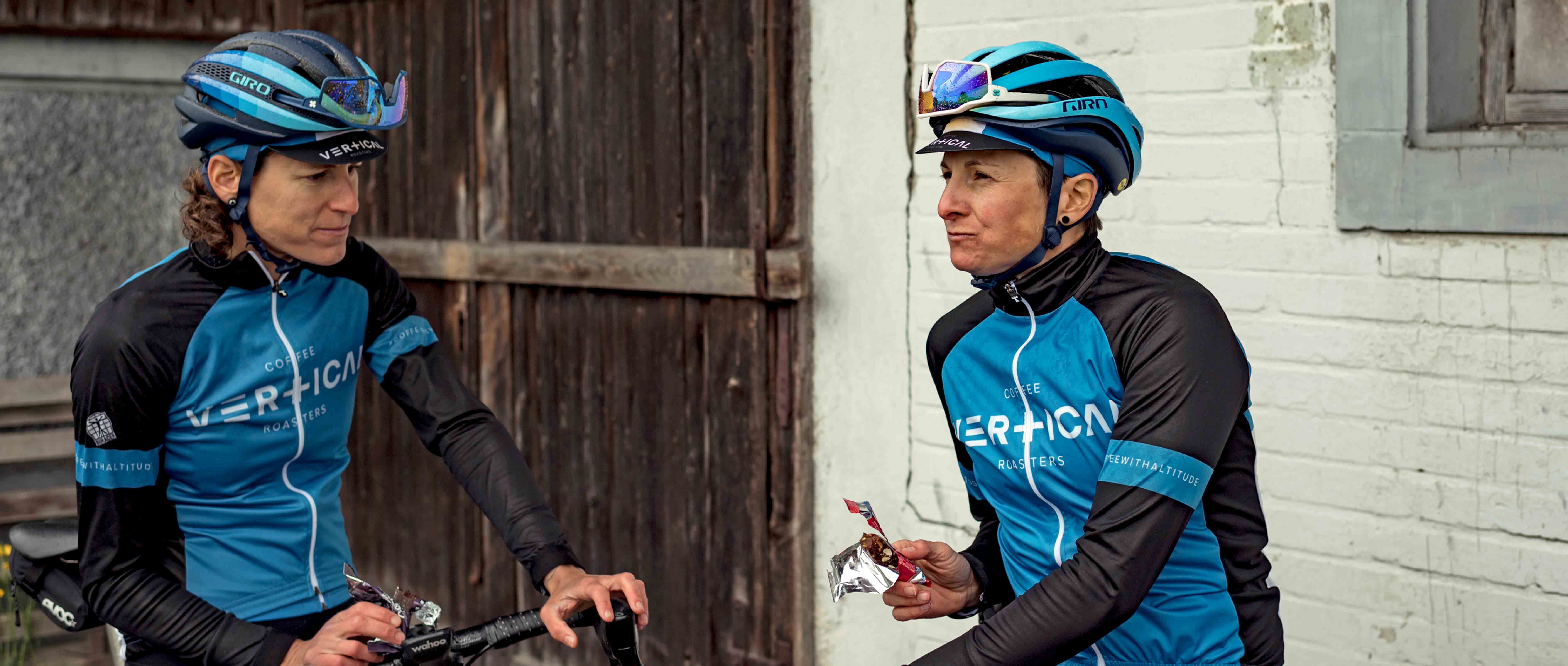 Image courtesy of @Phil Gale
Image courtesy of @Phil Gale
Denise Morf and Simone Ernst, organisers of the Vertical Brevet
“When it comes to longer events, we see that the barrier of entry is more the distance and difficulty of the event itself rather than the logistics around it. Our Vertical Brevet, which is roughly 250km with around 5000m of climbing, requires you to have some experience in cycling plus the desire to complete this event to do it. In that respect, we don’t pre-open registrations because women have alarm clocks too. To be honest, we want everyone who takes part in our Brevet to be able to finish - it wouldn’t be right to have more riders of any group if they were only to make it past the first loop to fulfil a quota."
“Our role as organisers and female riders should be to lead from the front”
"What we see from our events is that a higher proportion of women take part in our Vertical Brevet Discovery Rides. In our eyes, the tendency towards the shorter distance must have something to do with the need to have proved to yourself beforehand that you can ride the full distance, so your longest ride can’t be less than 250 km."
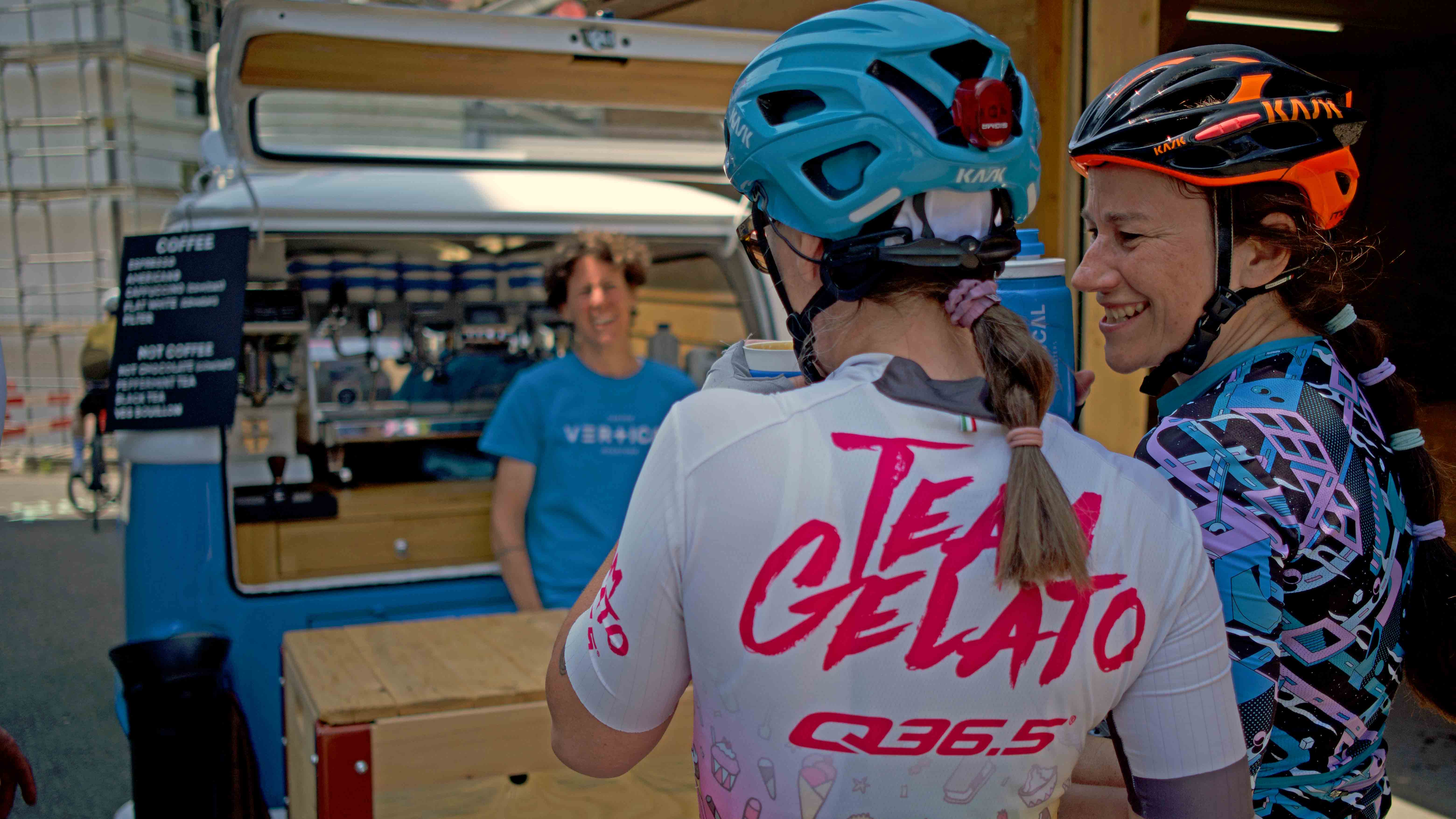
Image courtesy of @Vertical Coffee
"Our role as organisers and female riders should be to lead from the front and show that we can do these amazing long rides, which we hope will in turn inspire more women to do just that. When it comes to the wider gravel community, there is a lot that can be done and we totally respect those that are engaging and welcoming women into the gravel world.”
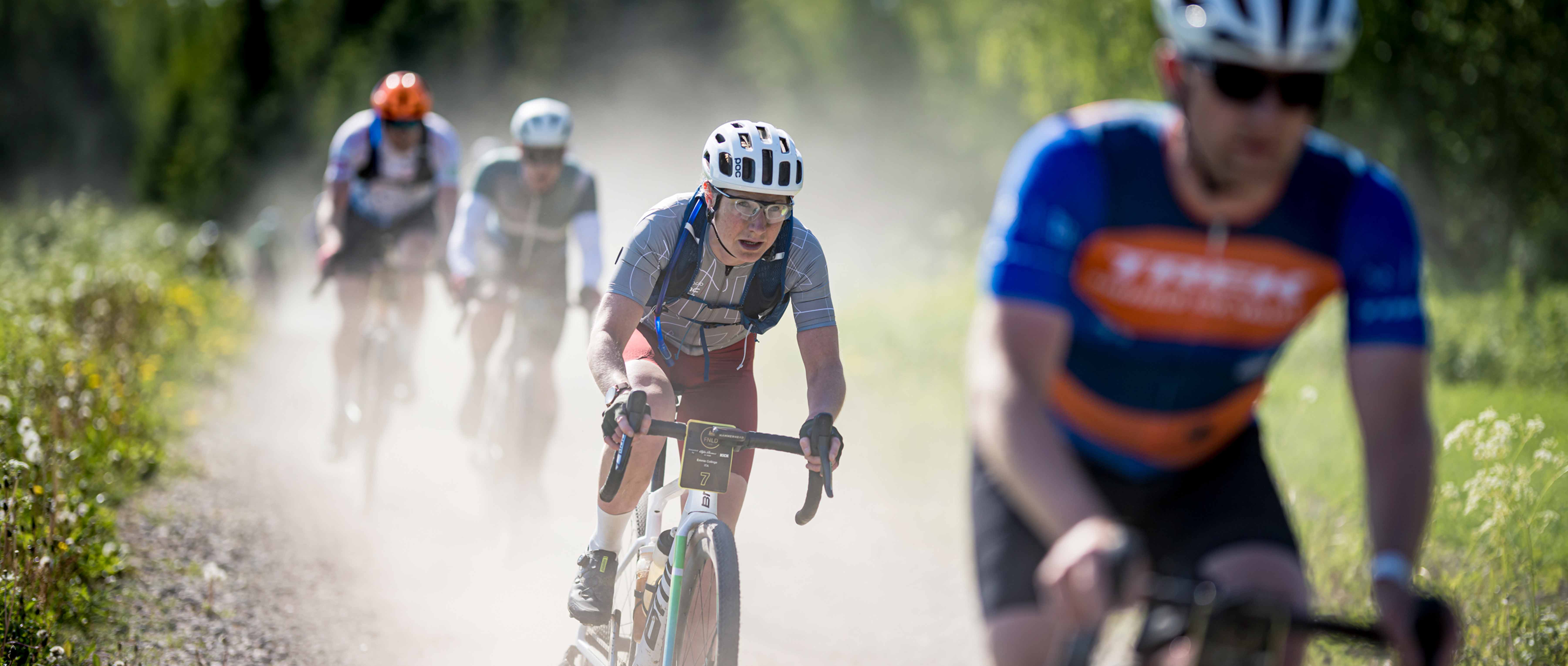
Image courtesy of @Phil Gale
Lisa Wörner, gravel racer and founder of the mixed-gender No Borders Gravel Team
In little under a decade, cycling has developed the gravel industry with an at-times copy-and-paste mentality – especially on the competitive side. Netherlands-based amateur gravel racer and silver medallist at the 2023 UCI Gravel World Championships (AG19–34), Lisa Wörner is used to racing with a big bunch of men, but knows the importance of a level playing field.
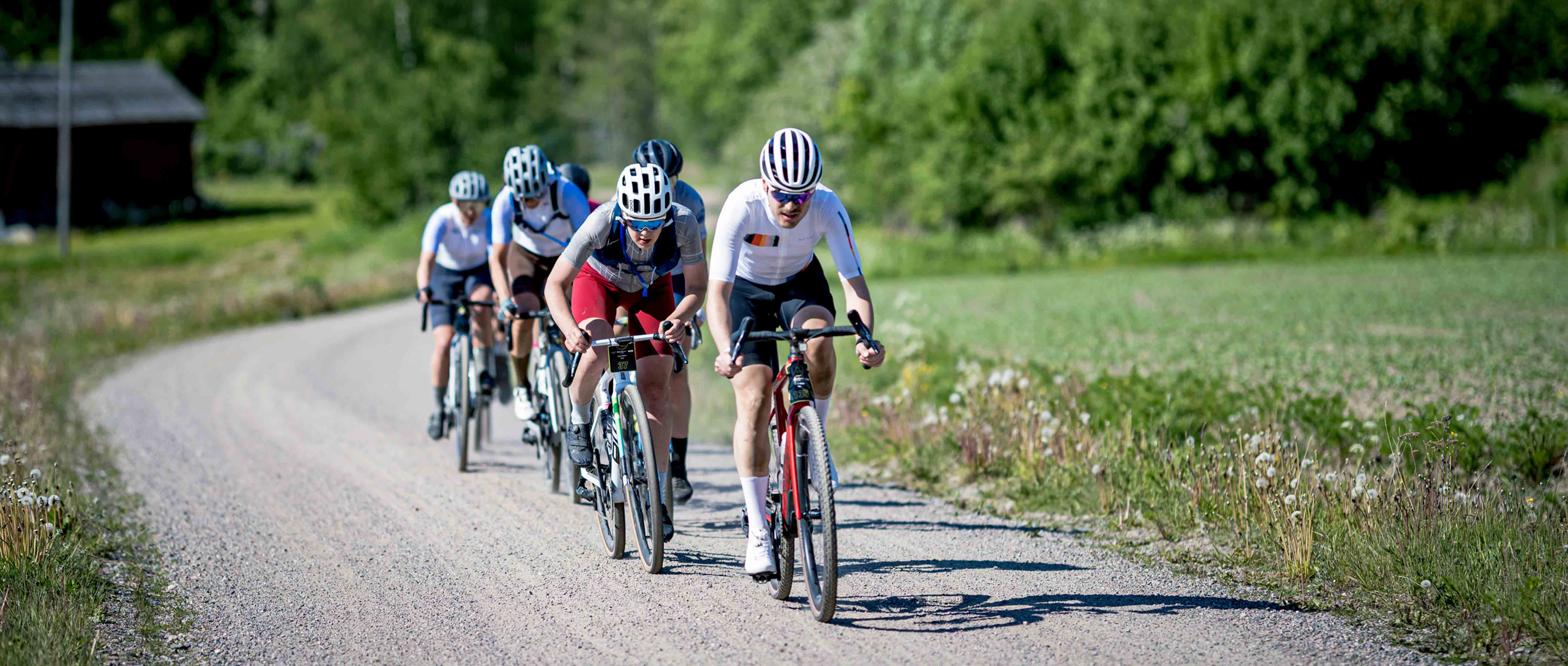
Image courtesy of @Phil Gale
“I’d like to see more inclusivity and proof that organisers understand that us women are out here racing, too. In an ideal world, the perfect female-friendly event would involve equal entries for the genders, but at the very least, I’d like to see separate starts or even just an awareness that putting elite females on the start line with amateur men is not female-friendly at all."
“The perfect female-friendly event would involve equal entries for the genders”
"The most important thing is knowing that the organisers are actively trying to invite or attract women to their event. I don’t need any other incentive, like special food or drinks or female-specific stands at an expo. When it comes to the gravel and side events, I’m pretty certain our interests are the same.”

Jessie Van Nistelrooy, Marketing and Communications manager at Dutch gravel event organiser, Moev Events
“We currently get around 20% of our sign-ups for The Ride Gravel from women but are actively trying to increase this percentage. We have a female event producer, Maartje, who is responsible for the day-to-day running of the event, as are many of our support staff and volunteers. We also have a lot of female ambassadors for the event, who do everything from organising training rides to answering questions from future participants to sharing their journey and inspiring more women to get involved. From an organisational perspective, we also organise pre-event webinars aimed at our female participants.”
Justi Hansen, Event Director at Grinduro California
California, USA was home to the OG of gravel festivals, Grinduro, which was first held back in 2015. Known for their inclusive and welcoming approach to gravel events, Grinduro California is an exemplar of implementing best practice for large-scale events.
“Grinduro, CA, is hosted by Siskiyou Outdoor Recreation Alliance (SORA)." Justi told us. She continued "As a female-led non-profit organisation, we take pride in hosting inclusive sporting programs and events that appeal to a wide range of adventure seekers. We are known for fostering a work culture that values diversity, empathy, and humour and these values are reflected in our events, including Grinduro, CA. “
“As a female-led non-profit organisation, we take pride in hosting inclusive sporting programs and events that appeal to a wide range of adventure seekers.”
“A few key characteristics of Grinduro that appeal to a broader audience than traditional bike races include an enduro-style format with timed stages and opportunities to ride with friends and enjoy the epic gravel, swimming holes, and breathtaking views. Riders have two courses to choose from - the 60-mile Grinduro course or the 35-mile Grindurito option. We offer open gender, para-cyclist, tandem, and male and female 60+ categories. The event venue at Shastice Park in Mt. Shasta is wheelchair accessible and family-friendly with a playground, skate park, and youth bike skills park. Last year, we offered a bike skills clinic for kids, and it was a big hit with the little groms and their families. Grinduro, CA is for anyone who wants to join the festivities. It’s a worthy gravel challenge with the opportunity to celebrate and connect with friends and family at the base of the mythical Mt. Shasta.”
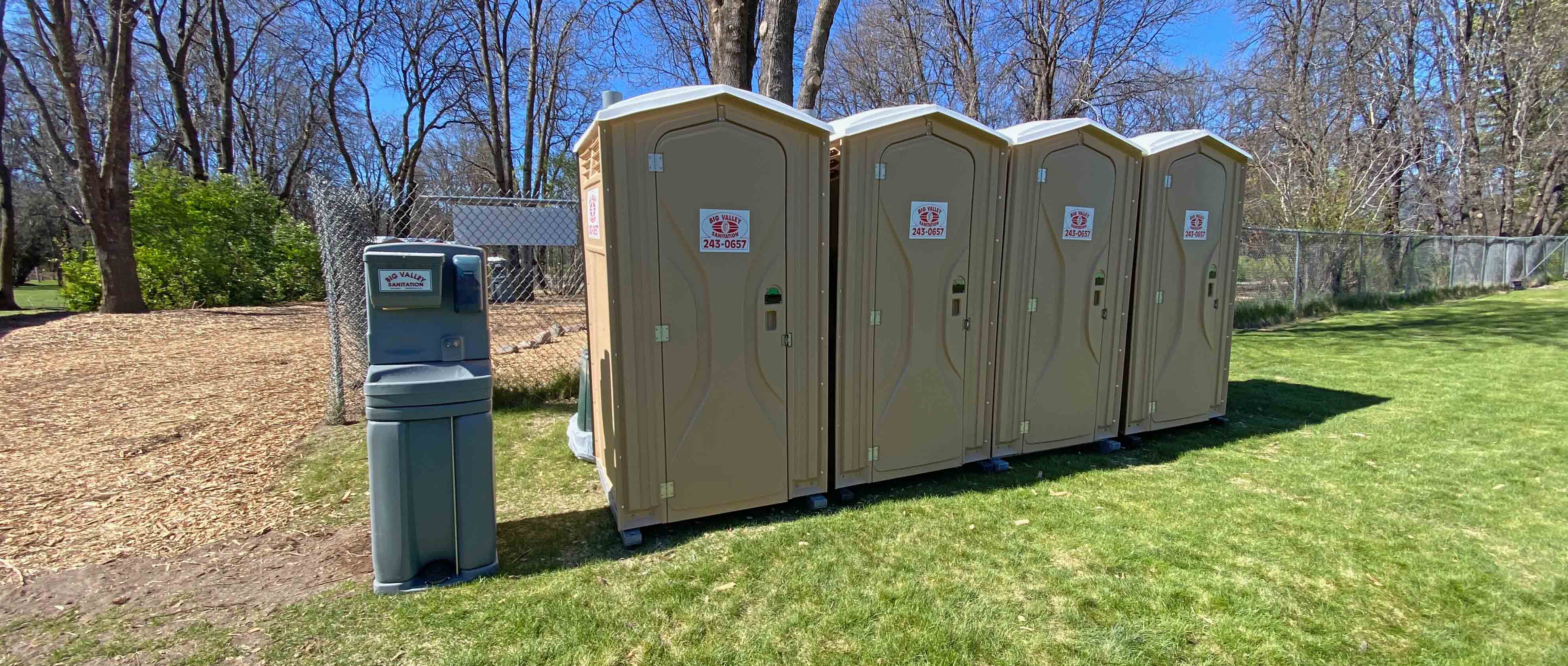
The quality of the toilets or the labels on beer cans may not be top of the agenda for a gravel event organiser, but our advice for them is to rethink what you’ve always done to ensure that women and marginalised groups, who aren’t traditionally reflected in cycling, get the same sense of satisfaction from attending your event as the men do.
Our top female-friendly event picks for 2024
Sisters In The Wild Summer Gathering Two days of gravel riding, skill-building opportunities, killer grub, and basecamp fun, surrounded by a supportive and inclusive atmosphere.
Dukes Weekender. An inclusive and family-friendly gravel festival close to the shores of Loch Lomond with events for children and riders of adaptive bikes.
FNLD GRVL “They’ve brought an all-inclusive American atmosphere and managed to simultaneously be both seriously competitive and beautifully welcoming, which is something that in my experience no other European-based gravel event has succeeded in.” Emmie Collinge, Elite gravel racer and photojournalist
Vertical Brevet Capped at 45 entries, this is an intimate brevet with multiple tough loops that start and finish at Vertical’s coffee roastery.
Brothers In The Wild If Kelly-Jayne Emmerson was going to buy a ticket for any event tomorrow, it’d be Brothers In The Wild. In her words, they’re doing so much good stuff – including the women’s panel that immediately made her love the Dorset-based event.
Rapha Pennine Rally Chapeau for the organisers of the Rapha Pennine Rally for their efforts to get more people to the start line, working together with the Steezy Collective to tell more stories of women.